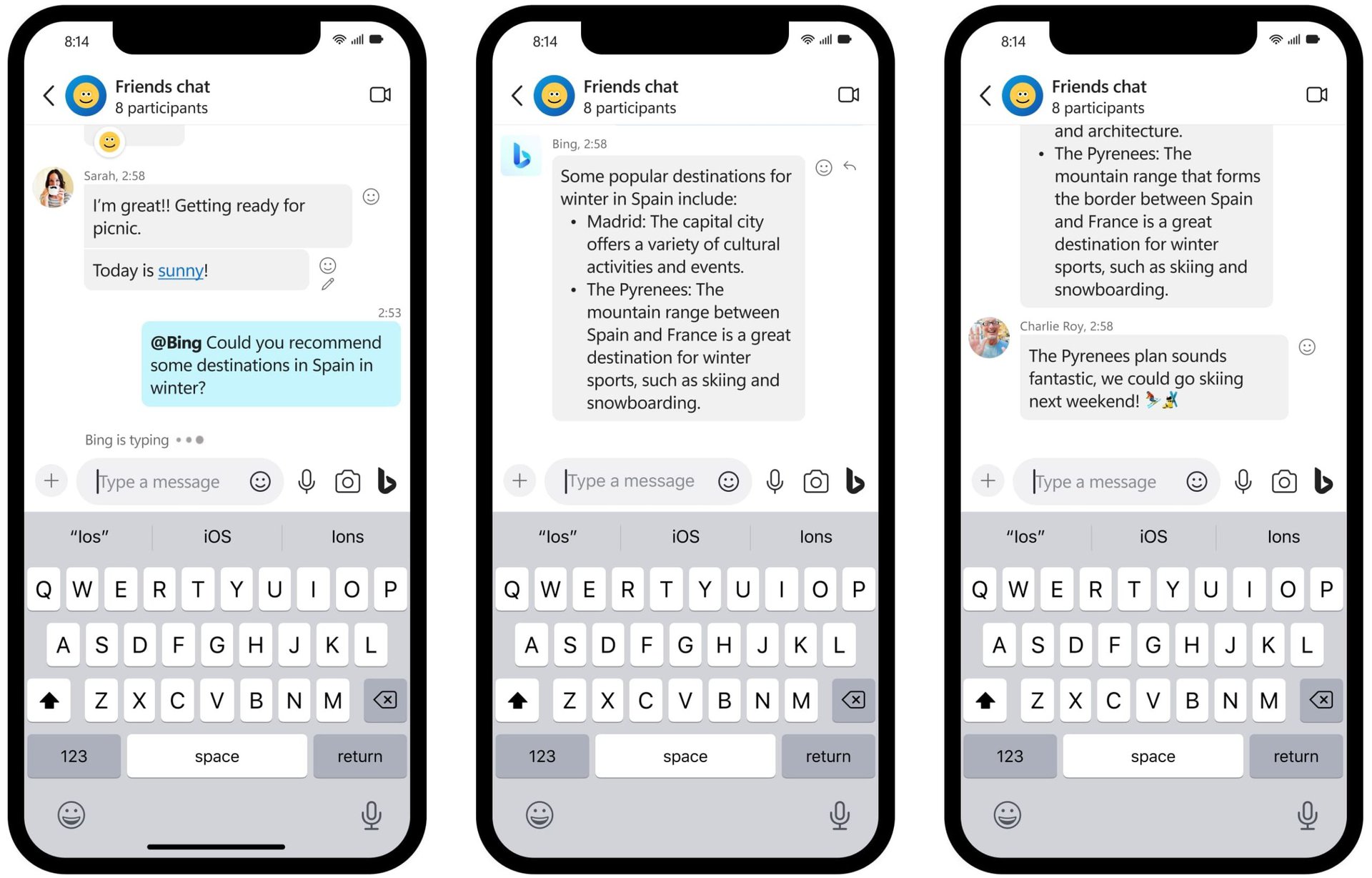Affiliate links on Android Authority may earn us a commission. Learn more.
I tried Bing Chat on mobile, and I'm not going back to Google Assistant
Published onFebruary 26, 2023
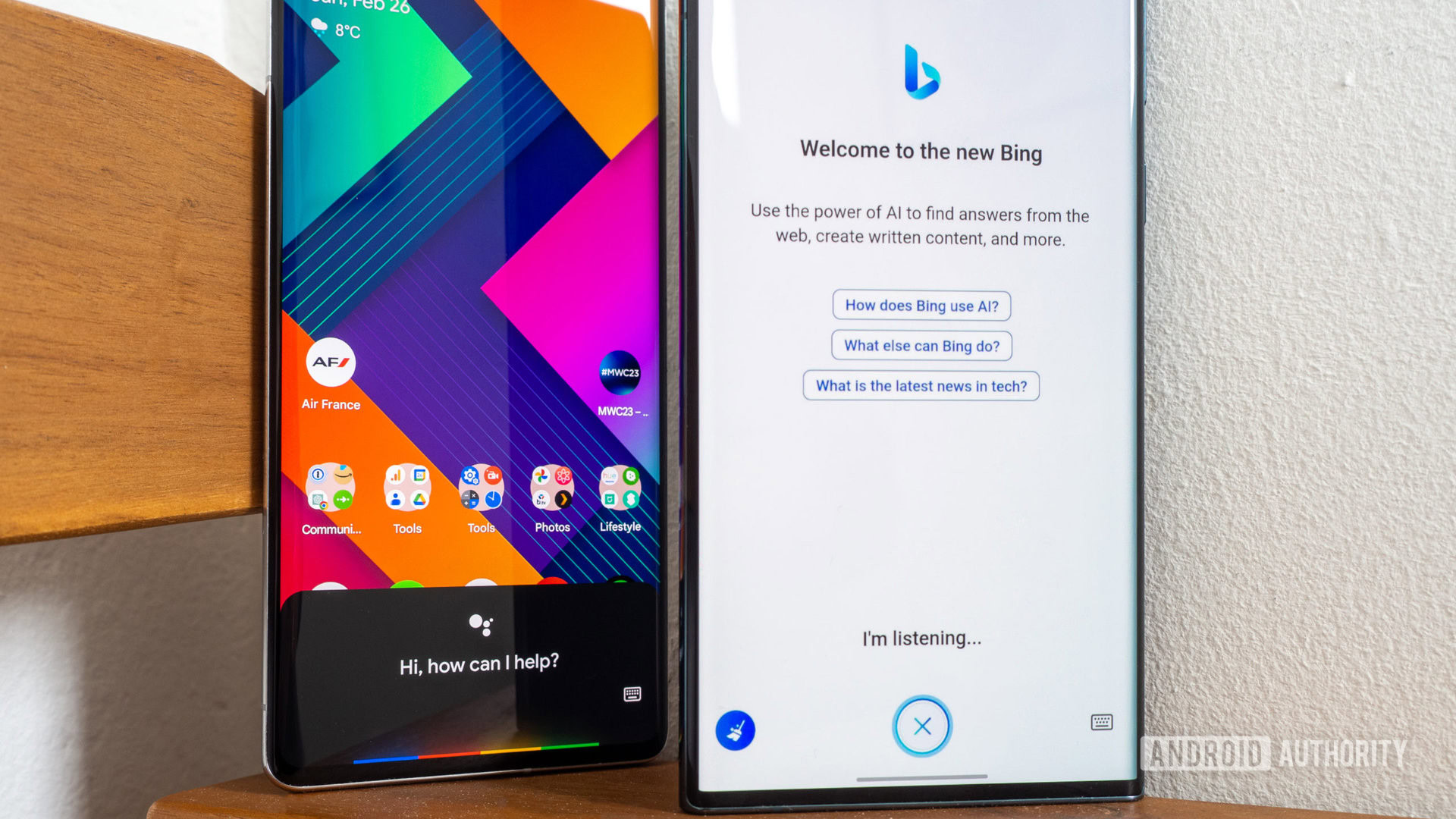
When Microsoft announced that it was rolling out a new Chat mode within Bing, I joined the waitlist almost immediately. But even though I was among the privileged few to gain early access, I found myself rapidly losing interest in the feature. From a practical perspective, ChatGPT delivered longer creative responses and I had no interest in “jailbreaking” Bing to elicit an emotional response. As for everyday searches, I still preferred a list of conventional web results over a 200-word reading exercise.
All of that changed a few days ago when Microsoft brought Bing’s Chat mode to mobile and gave it a voice. To my surprise, this small change was enough to reel me back in. While back-and-forth interaction with a chatbot can feel laborious over a keyboard, speaking out loud in plain English comes naturally. Moreover, it’s something many of us have already become accustomed to with Alexa and Google Assistant. But unlike those services, talking to the new Bing actually feels like I’m actually interacting with a knowledgeable virtual assistant.
The obvious benefit of using Bing Chat versus existing options like Google Assistant is that you don’t have to phrase your question in a specific manner. I’ve lost count of the number of times Alexa and Assistant have misunderstood me if I didn’t phrase a command just right. But even when these services fully understand what I’ve said, there’s a stark divide in the quality of responses when compared to Bing. Here are a few examples of Bing vs Google Assistant that I’ve come across over the past few days alone.
Bing’s Chat is not available to the general public yet, but you can join the waitlist to gain access eventually. You can also improve your chances by downloading the Bing app and logging into your Microsoft account.
Bing vs Google Assistant: Spelling mistakes? No problem
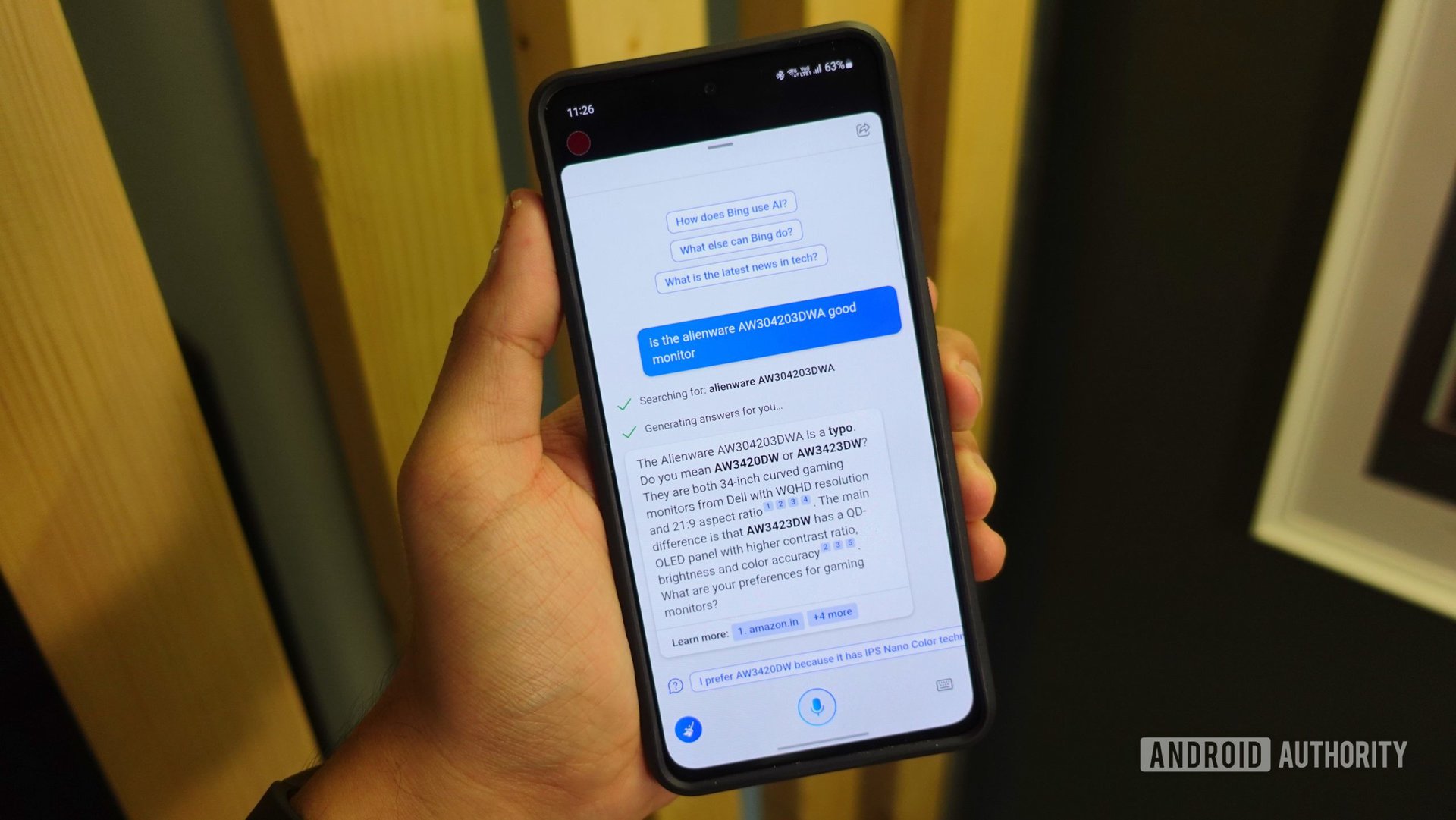
With voice input, I’ve come across countless words that virtual assistants just cannot interpret. If it’s not in the English dictionary, good luck getting an answer from Google Assistant or Siri. Now, I’m not saying that Microsoft has done anything magical with speech-to-text, but Bing can definitely interpret the meaning behind an ill-formed prompt.
Bing can look past spelling errors, even when it's a proper noun.
Take, for example, a recent interaction where I asked whether I could store my luggage at Bangkok’s airport. Google Assistant simply provided a list of web links and said something to the effect of “Yes, you can store your luggage at the airport”. Bing matched that response and also narrated the names of four competing services.
So far, so good. But then, I followed up with a voice prompt that apparently didn’t translate well to text — Bing heard “airport else” instead of “Airportels”. Despite that, I watched Bing as it not only searched for the correct company but also attempted a second search to include the location I had asked for.
If this happened with Google Assistant, I have no doubt that I’d have to reframe the question or re-type the correct name, defeating the point of using a chatbot in the first place. Bing’s ability to auto-correct isn’t a one-off either as I highlight another example in the following section.
Is X compatible with Y?
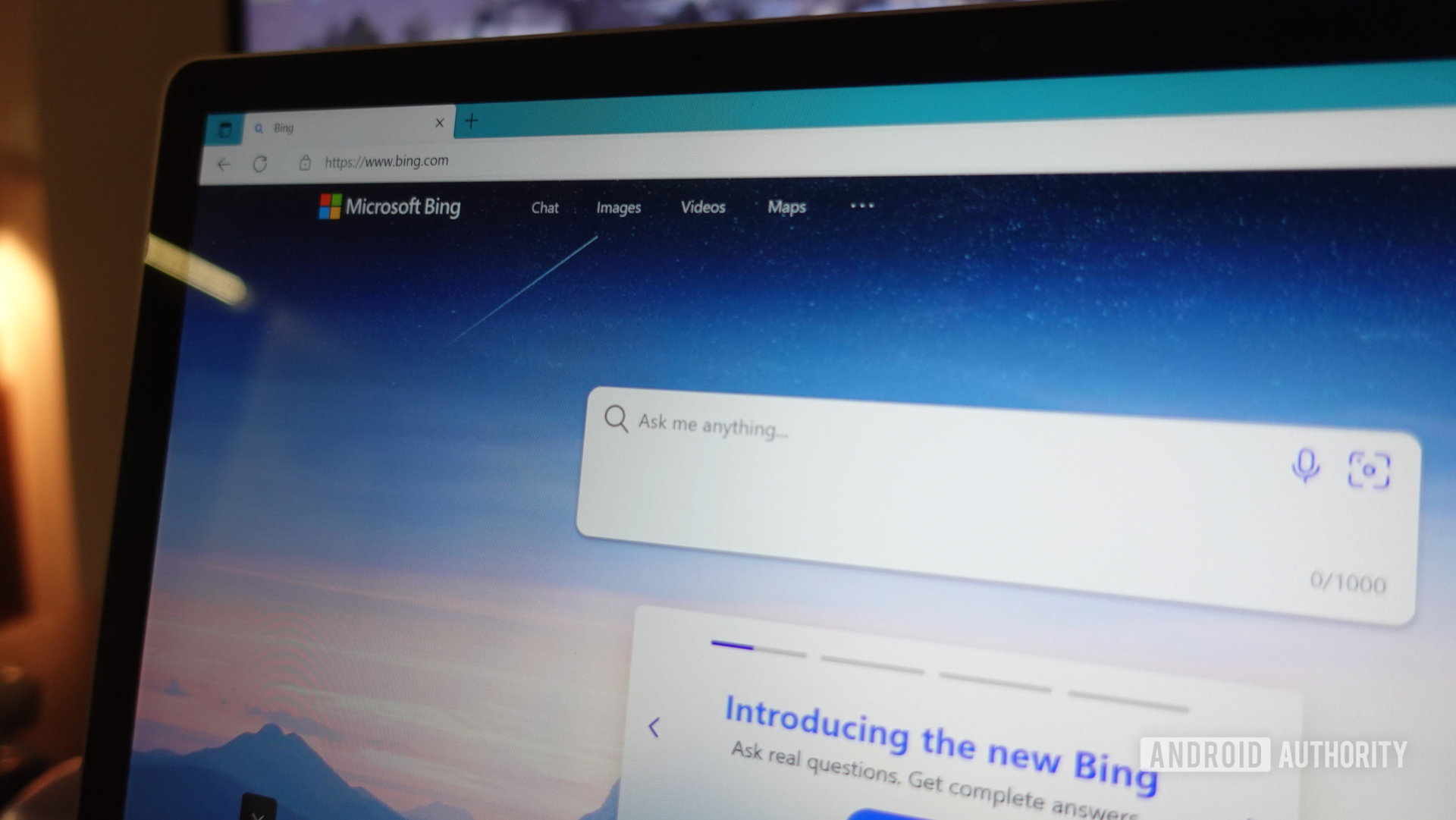
If you ask Google Assistant a simple question, chances are that it will find and relay the correct answer. However, it quickly unravels when your queries become a bit more complicated.
The other day, I wanted to know if the new Hogwarts Legacy game would perform well on my gaming PC. I asked Bing and Google Assistant back to back and they both delivered answers that sounded plausible. However, the answers were actually completely different from each other. What went wrong? It turns out that Google searched for the wrong Nvidia graphics card, even though I explicitly specified the correct one in my prompt. A small omission on the Assistant’s part meant that the response was almost entirely unusable.
Google Assistant often misunderstands my intent, even when it hears the right words.
Bing, meanwhile, didn’t misinterpret my hardware even though I gave it a more open-ended prompt. Its response also included the in-game settings I’d have to use to achieve the stated performance. Finally, it asked if I had a higher-resolution display at the end of the response — something I specified in the Google Assistant prompt, only to have it completely ignored. Google has advertised that you can continue conversations, but I couldn’t get the Assistant to correct or refine its answer.
I also tried to ask Bing about a non-existent graphics card and it managed to autocorrect RTX 3720 to RTX 3070. Funnily enough, even if I Google search “RTX 3720”, the top results are for Taco Bell restaurants located in Texas (TX) with a 3720 unit number. Not sure why Google’s auto-correct didn’t kick in there.
Moving on, Google Assistant heavily relies on singular sources when it looks at web results. When I needed advice on buying a TV to match a specific IKEA stand, it simply regurgitated the product description. Accurate information, but not very helpful or actionable.
On the other hand, Bing asked me to specify a TV screen size after searching for the stand’s dimensions. It then told me that I’d have very little spare width with a 65-inch TV, making for a tight fit. Needless to say, that’s the kind of response you’d expect from a personal assistant even if both did reasonably well.
Bing vs Google Assistant in the kitchen
Ever since the first smart speakers and displays hit the market, Google and Amazon have marketed them as ideal cooking companions and, at times, kitchen essentials. The idea is sound in theory — you usually don’t have the time to type and scroll while cooking. Despite that, however, I’ve never found assistants to be very useful in the kitchen. Sure, they can easily convert between units like grams, ounces, and cups but their utility stops short when you cannot follow a recipe and need advice. And in real life, that exact situation plays out very often.
Just the other night, I was preparing a dish that called for a small amount of mirin, a Japanese rice wine. Now, I didn’t have any on hand but I do have a fairly well-stocked pantry of Chinese ingredients, including Shaoxing wine. Could I get away with substituting one for the other? Asking my Google Home Mini that question simply yielded a disappointing “Sorry, I can’t help with that yet!” response.
Smart speakers aren't very helpful in the kitchen, even though they're marketed as such.
Meanwhile, Bing didn’t just give me an answer but also offered a way to improve the substitution with a bit of added sugar. It also asked what dish I’m preparing, but sadly didn’t offer any more help based on my response. Still, it’s a clear win for Bing in an area where you’d expect Google Assistant to shine.
In Google’s defense, I brought up the Assistant on my phone and asked the same question. It pulled a single website excerpt that outright discouraged the substitution and suggested using something I didn’t have on hand. While this is a somewhat divisive question that depends on the exact recipe, Google’s single-source approach definitely lowers its usefulness.
An AI in your chats
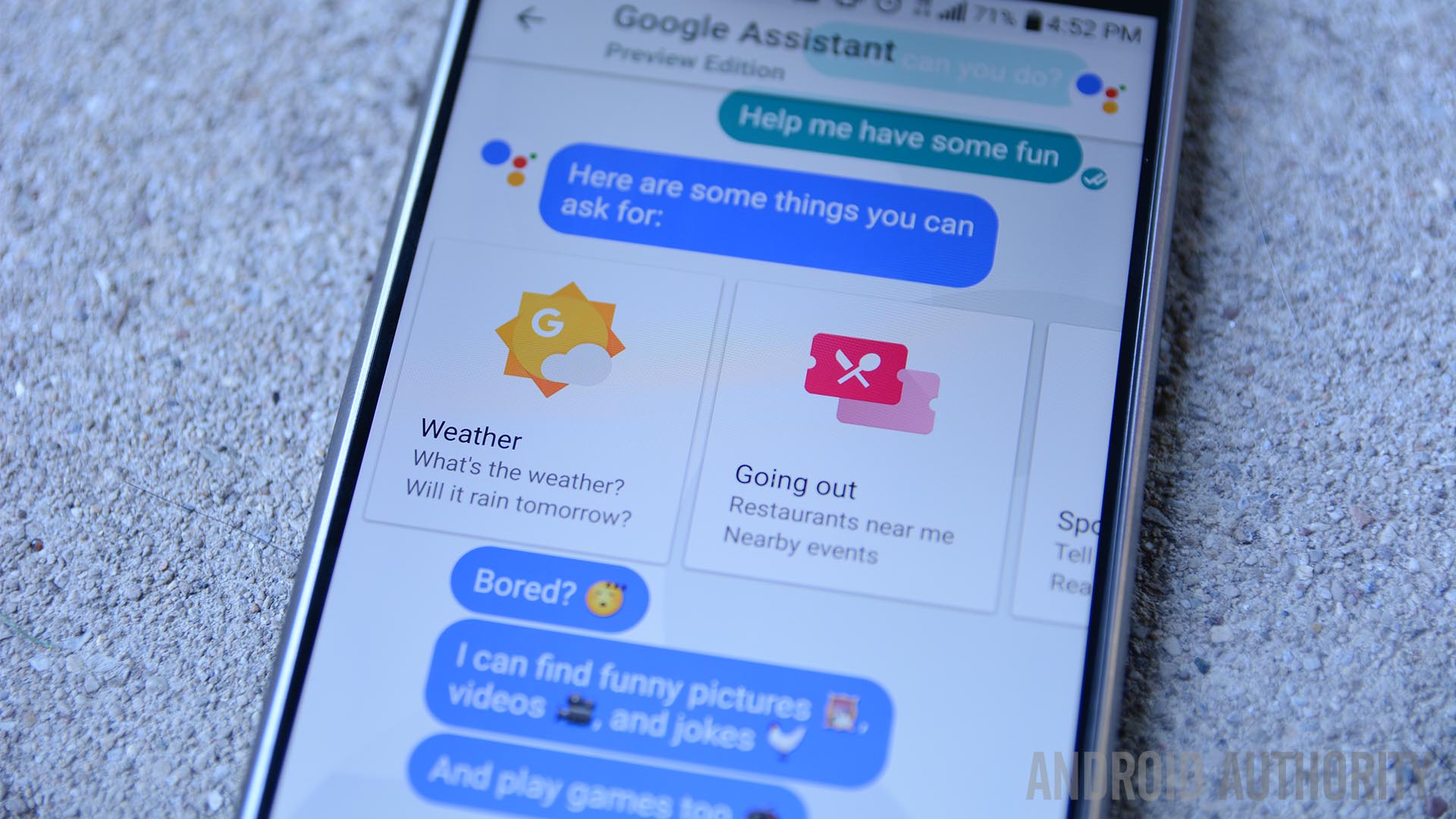
Besides enabling voice access, Microsoft also added Bing’s new Chat feature to Skype over the past week. This is an idea we first saw Google attempt with Allo back in 2017 (pictured above). It worked well while it lasted, offering contextual replies, search results, and local recommendations from Google Maps within your chat. But the results never really fit in all that well — the card-style interface always served as a reminder that you’re interacting with a search engine first, assistant second.
Skype’s new Bing integration delivers a much more seamless experience, eliminating the disconnect of having web results pop up in the middle of a chat. It’ll compile multiple results in plain English and present them in a chat bubble that doesn’t look out of place. It really feels like the helpful in-chat assistant Google envisioned all those years ago.
To use Bing’s new Chat feature in Skype, you need to add it to a group chat like you would with any other contact. Your account must also have access to the Bing Chat preview.
Bing vs Google Assistant: An unfair comparison?
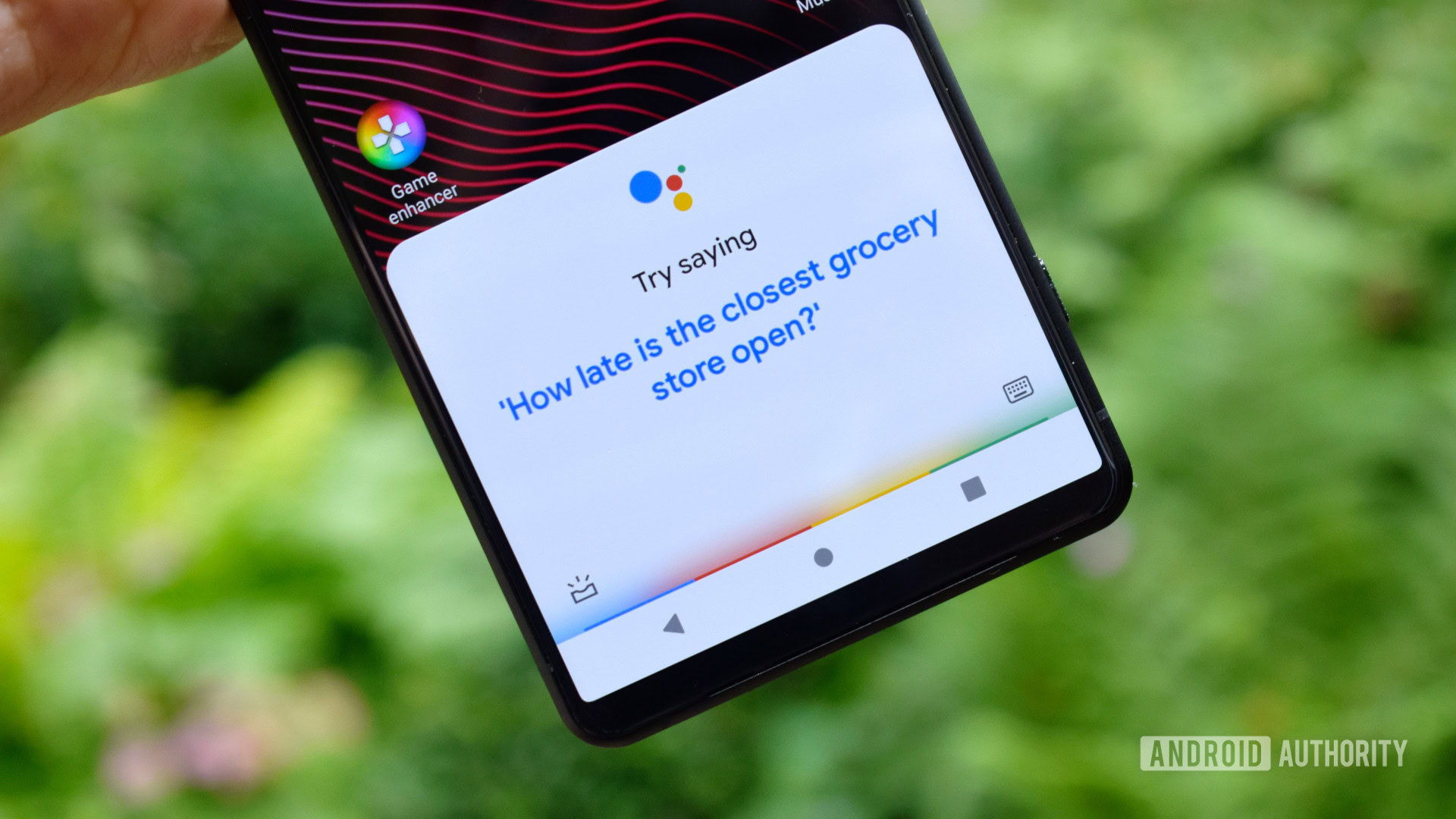
Now, I know what you’re probably thinking: comparing Bing vs Google Assistant isn’t exactly fair. After all, Google doesn’t use a large language model like ChatGPT as its base. And while I agree with that sentiment, interacting with Bing via voice was still a revelation.
For years, we’ve been sold on the idea of virtual assistants that can provide answers and helpful suggestions. However, most of them simply haven’t lived up to the hype. Microsoft had to axe Cortana with the release of Windows 11 after it fell short of expectations. The new Bing finally delivers on those promises and it’s not even tied to an expensive hardware purchase. The only downside is that you can’t ask Bing to control your smart home devices (yet, anyway).
Google has a competing chat feature in the works, but will it help the Assistant?
We know that Google is working on its own competitor to OpenAI’s ChatGPT and Bing, called Bard. But will it enhance the existing Assistant? Or will this new chat mode be limited to Google Search? Knowing the company’s track record and the sheer processing cost involved, I expect the latter. This will undoubtedly lead to a fragmented experience, requiring you to open a web browser to access Google’s full-fledged chatbot. So while I’m excited about the prospect of any competition at all, I’m preparing to be a bit disappointed already.
Would you ditch Google Assistant for Bing?
For now, though, Bing has almost completely replaced Google Assistant in my life. I’ve even made it so that long-pressing the power button on my phone brings up the Bing app. It’s not a perfect replacement admittedly — responses can sometimes take a few seconds and I much prefer Google’s text-to-speech engine, but the benefits certainly outweigh those nitpicks. And it doesn’t hurt that Microsoft Rewards still pays you to use Bing.
